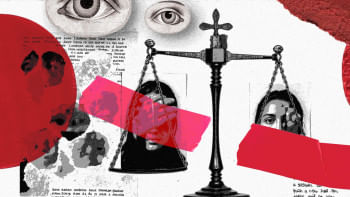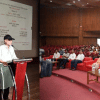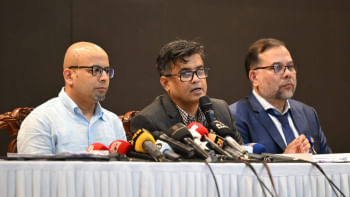The urgent case for a truth and healing commission for Bangladesh

Bangladesh has a history of unaddressed violence. The scars left by the Liberation War of 1971 have never truly healed. In addition, the 15-year autocratic rule inflicted new rounds of violence in the form of extrajudicial killings, enforced disappearances, suppression of political dissent and state repression among many other gross human rights violations. The July massacre has been a culminating rupture in this longstanding history of structural violence and repression. This history of violence, in addition to its recent forms, eventually necessitated truth-telling and healing for the sufferers to address their victimisation and need for justice.
There have been recent talks of establishing a Bangladesh-tailored model of truth and healing commission (THC), which could offer a platform for the victims to finally be heard, acknowledged, and supported in their journey toward healing from post-conflict trauma and challenges. But does the current legal framework and existing laws of Bangladesh, notably the Commissions of Inquiry Act, 1956, allow for the establishment of such a commission?
The Commissions of Inquiry Act, 1956, provides the government the power to establish commissions to investigate specific matters of public importance. Historically, it has been used to address issues such as political violence, corruption, and national crises. More recently, the Commission of Inquiry on Enforced Disappearances was established under Section 3 of this Act. The Act primarily facilitates inquiries into specific events or issues, providing the government the power to summon witnesses, collect evidence, and issue reports. While this may be useful for investigating incidents of state violence or human rights abuses, it does not provide the comprehensive framework necessary for healing the wounds inflicted on victims by the state's own actions. The Act or any other existing law of Bangladesh does not offer mechanisms for reconciliation or social reintegration, both of which are critical elements for national healing after years of trauma.
The Commissions of Inquiry Act is focused on fact-finding. However, a truth and healing process entails listening to the voices of victims, acknowledging their suffering, and helping to reintegrate them into society, none of which are offered within the existing Act. Furthermore, one of the critical gaps is its lack of provisions for victim protection. In the case of politically sensitive inquiries, especially ones that could implicate the members of the autocratic regime still holding a powerful position in government administration, victims and witnesses might be hesitant to testify. The legal framework does not offer adequate safeguards to protect those who might fear retaliation.
To establish a workable model of a truth and healing commission, the entire country must engage with the past and be willing to move forward together. This involves public acknowledgement of the suffering caused by the government's actions, apologies, reparations, and the reintegration of victims into society.
What needs to be done?
It is evident that the current legal framework does not fully support the establishment of a truth and healing commission focused on addressing post-conflict victimisation. To resolve this issue, the government can potentially amend the Commissions of Inquiry Act, 1956, to address the loopholes. Alternatively, the government can introduce a new act that will comprehensively allow the requisite legal provisions for establishing such a commission.
The government will thereby have to expand the mandate of any commission set up under an Act of Parliament to include restorative justice principles—not only to investigate incidents of political violence but also to offer an opportunity for victims to share their experiences, be heard, and be acknowledged. This could include victim testimony and a commitment to reintegrating them into society through psychological support and reparations.
The legal framework must guarantee protection for victims and witnesses. This can include witness anonymity, legal safeguards against retribution, and provisions for physical and psychological protection. Such safeguards are essential as the commission should be a space where victims are protected, supported, and empowered to speak the truth without fear of punishment or retaliation.
In doing so, the commission shall not only contribute to the documentation of truth but also ensure accountability for structural violence and injustice. This would mean calling for public acknowledgement of state-sanctioned violence and political repression and commitment to the prevention of future abuses, even if this implicates senior political leaders, state agents, or army officials. The commission can also provide recommendations for the government to make reparations, whether financial, social, or symbolic, to the victims, after actively listening to them. Numerous international legal frameworks can be foundational to the establishment of THC in Bangladesh. For example, the International Convention for the Protection of All Persons from Enforced Disappearance (2006) mandates truth seeking and accountability for enforced disappearances. Additionally, UN Basic Principles on the Right to a Remedy and Reparation (2005) also guarantees the rights of victims to reparations, including truth seeking.
The victims of state repression, extrajudicial killings, and political violence deserve more than just the legal pursuit of justice under the current regime. They deserve a space where their voices can be heard, their pain acknowledged, and their suffering addressed in a way that promotes healing for all.
It is time for the government to take the first step in healing the nation's wounds. The establishment of a Truth and Healing Commission is not just an act of justice; it could also be an effort towards propelling national unity. Acknowledging the pain of the past will allow Bangladesh to move forward with a more inclusive and compassionate future. Healing is a necessity to break the cycle of violence.
Barrister Tajriyaan Akram Hussain is an advocate at the District and Sessions Judge Court, Dhaka and an associate at a law firm in Bangladesh.
Dr Muhammad Asadullah is associate professor at the Department of Justice Studies at the University of Regina, Canada.
Nousheen Sharmila Ritu is executive director of Bangladesh 2.0 Initiative, a UK-based think tank organisation.
Views expressed in this article are the authors' own.
Follow The Daily Star Opinion on Facebook for the latest opinions, commentaries and analyses by experts and professionals. To contribute your article or letter to The Daily Star Opinion, see our guidelines for submission.

 For all latest news, follow The Daily Star's Google News channel.
For all latest news, follow The Daily Star's Google News channel. 










Comments